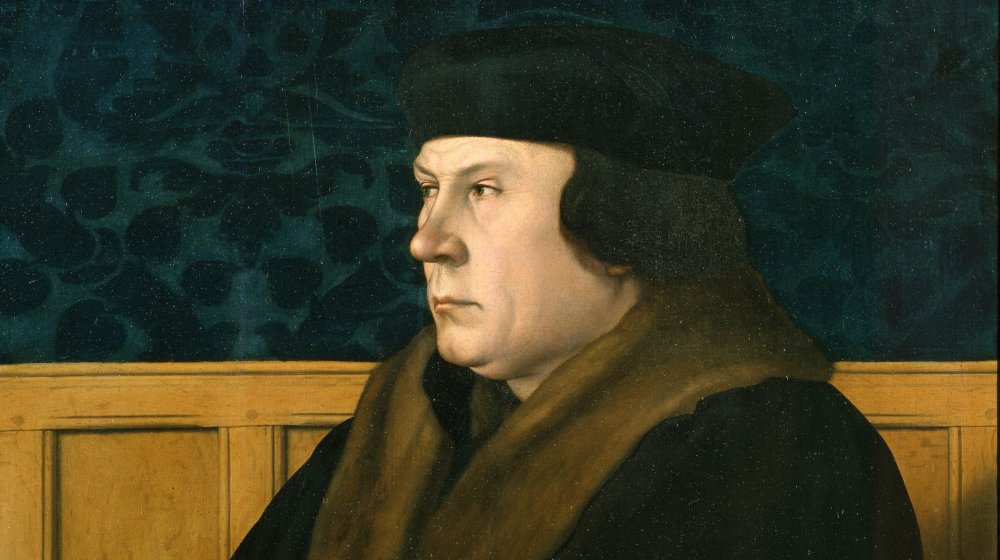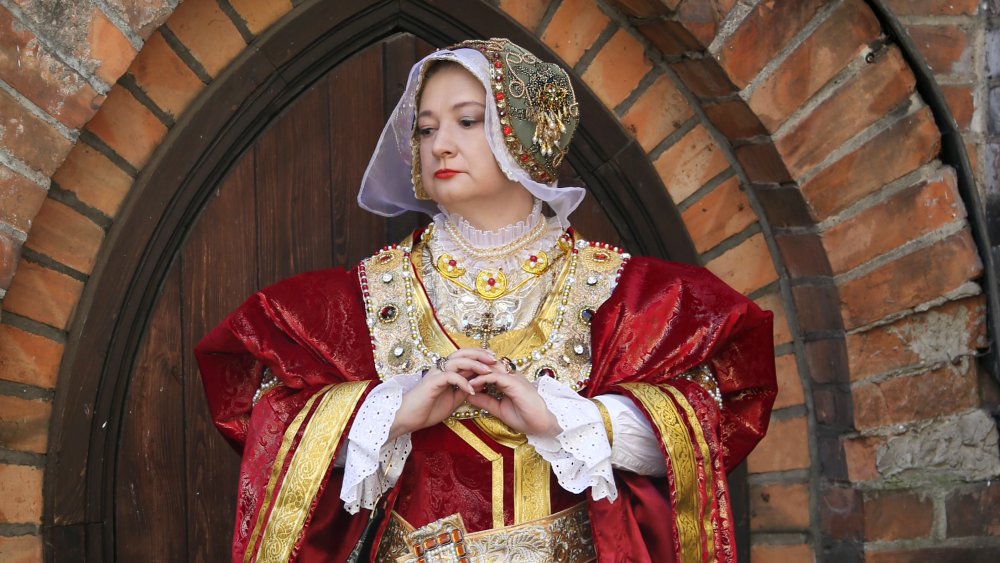The Real Reason Henry VIII Executed Thomas Cromwell
In 1540, Henry VIII gave his primary advisor, Thomas Cromwell, the axe. Well, technically the executioner gave him the axe, but the point still holds. Citing a dubious "contemporary" source, Victorian author Arthur Galton describes an "ungodly" affair in which the executioner hacked away at Cromwell's neck and head for a half an hour. Other descriptions contradict this version of events, alleging that Henry cleanly severed ties with Cromwell after a single swing. Either way, Cromwell's cranium was headed to the same place — off of his body.
It was quite a fall for a man who had risen so high in his life. At the outset of his life, Cromwell had so little wealth to his name that even the record-keeping about his birth was poor. Per Historic Royal Palaces, no one knows precisely where or when he was born. However, the site writes that he was most likely born in 1485. Cromwell was the son of a businessman and a son of a much less flattering B-word when it came to his enemies. He initially tried to become a mercenary in the French army, but much like his future executioner, Cromwell couldn't hack it. Instead, he became a sharp businessman and lawyer. He went on to make friends in high places, the highest being the king. So, how Henry become an enemy?
When a man loathes a woman
Cromwell started off on the right foot with Henry VIII. He had initially gotten his foot in the door through his connection to the second most powerful man in England, Cardinal Thomas Wolsey. As recounted by Historic Royal Palaces, Henry heavily depended on Wolsey, who relied on Cromwell for legal work as part of his council. Wolsey fell out of favor with Henry, after failing to annul his marriage to Katherine of Aragon, so he could marry Anne Bolyne, hoping to sire a male heir. Henry gave Wolsey the boot, and Cromwell came to his defense. That earned Henry's respect and an advisory role. Cromwell succeeded where Wolsey failed, and secured the divorce.
Cromwell had the power to make heads roll, and may have done so in the case of Ann Boleyn. Cromwell and Boleyn got along at first, but butted heads over finances and foreign policy, per History. Historians butt heads over whether Cromwell actively orchestrated her execution, but he helped investigate allegations that she and her brother pulled a Cersei and Jaime ala Game of Thrones, and that she bewitched the king. Boleyn's death set the stage for two more ill-fated marriages.
Cromwell set Henry up with his fourth wife, Anne of Cleves. The king hated her. That misstep created a wedge between Cromwell and the king. Though Henry forgave him, their relationship crumbled, writes the Encyclopedia Britannica. Cromwell's enemies painted him as a heretic. Henry condemned him to death without trial.

